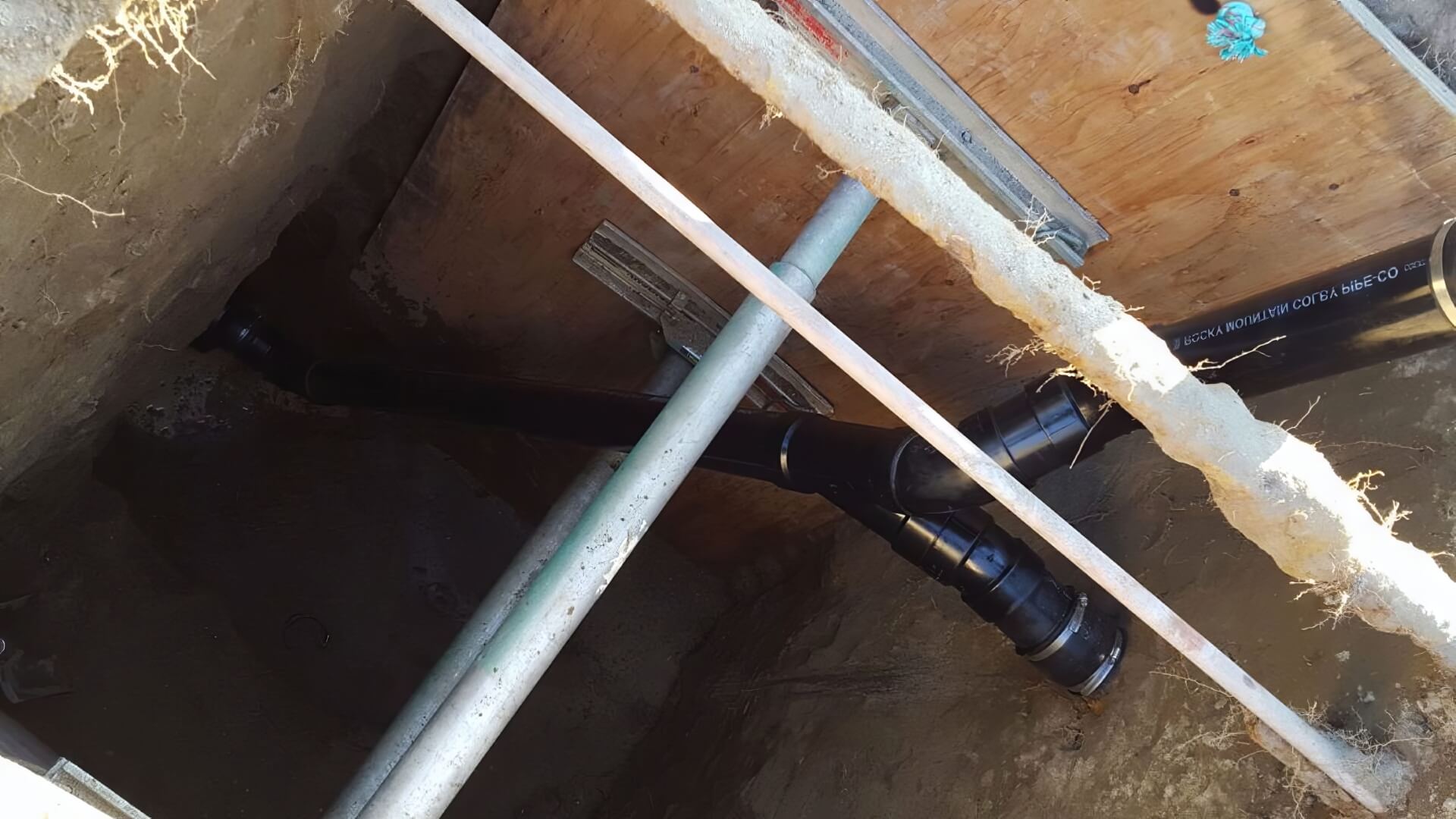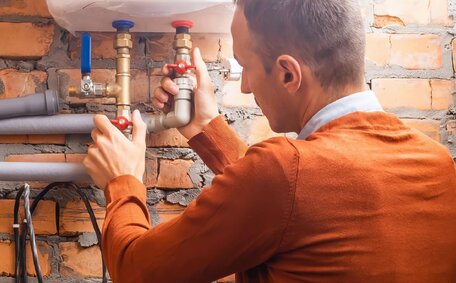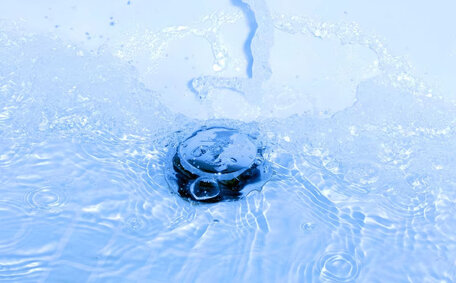Introduction: Understanding How Construction Debris Can Lead to Drain Blockages
Construction, renovation, and new home build projects can instigate drain blockages if debris is not correctly managed and disposed of. Materials such as concrete, grout, sawdust, nails, and drywall dust are frequent culprits of blocked drains, often infiltrating your home’s plumbing and obstructing water flow. Over time, debris that builds up can interfere with hot water systems, which may lead to significant plumbing problems.
Ryde Plumbing specialises in preventing and addressing drain blockages due to construction debris. From burst pipes to slow draining sinks, construction debris in drains often necessitates professional intervention.
This guide will delve into the common causes of construction debris blockages, signs of clogged drains, as well as prevention and safe clearance strategies. Whether you’re renovating your home, building an addition, or working on a large development project, this information will help protect your drainage system from troublesome debris.
Identifying Common Construction Debris That Cause Drain Clogs
Construction projects generate a significant amount of debris, including foreign objects that can easily end up in drains if not disposed of properly. Common materials causing drain clogs include:
- Sawdust - Fine particles, being flushed down sink drains, can accumulate in the pipes of your home.
- Nails and screws - If flushed down, these sharp objects can puncture and damage drains, the pipes your house can become susceptible to water leaks.
- Concrete and grout - Leftover cement materials quickly harden inside pipes.
- Drywall dust - This extremely fine dust sticks to pipes.
- Paints and solvents - Improperly disposed of latex and oil-based paints can leave sticky residues.
- Mortar - Cement mortar dries and bonds to pipes.
- Bricks and gravel - Large particles like bricks and gravel block where water can flow.
- Plaster - Plaster, abrasive by nature, also hardens and can become blocked once it settles into pipe interiors.
- Pipes and fittings - Loose parts find their way into the system.
Construction debris should be thoroughly swept and bagged to avert being washed into drains, thus minimising the risk of buildup. Always use proper disposal methods to prevent blockages in sewer drains pipes, requiring professional drain cleaning.
How Construction Debris Ends Up in Drains
Accidental or intentional incidents on worksites can lead to construction debris entering drains. Workers can unintentionally introduce debris into the drainage system during routine activities.
Sawdust can covertly create kitchen sink blockages, leading to unforeseen issues. Fine sawdust particles can easily slip down drains, often accumulating over time to block your drain.
As workers cut timber on-site, sawdust can be scattered and then swept down your kitchen sinks or hosed into outdoor drains. The same goes for drywall dust, which contains fine particles that cling to your pipes when washed down drains.
Workers might inadvertently direct stormwater down drains, increasing the risk of clogs. Materials such as grout, mortar, and plaster often washed off tools, can inadvertently enter stormwater drains, illustrating how easily drains can harbour debris. Even small amounts of cement, if flushed down drain, can harden inside your stormwater system.
Intentionally disposing of debris in drains, while convenient, often leads to problems. For instance, surplus bricks, gravel, and other undesired materials tossed into outdoor drains instead of proper disposal, is how a blockage can begin. This process can also gradually prove a cause blocked as your drains become obstructed.
It’s vital to educate labourers on proper debris removal to prevent construction waste from entering the pipes. Timely detection of issues also sidesteps extensive cleaning or replacement of drain pipes when it comes to maintenance down the track.
Effects of Debris Buildup on Drainage Systems
Debris accumulation within drainage systems can lead to serious blockages and backups. Buildups of sawdust, concrete, nails, and other construction materials can completely clog drains and sewer pipes. As the debris collects, it restricts water flow more and more until drains are barely draining at all.
Fully blocked drains can escalate to evident signs like blocked pipes, flooding, sewage overflows, and damage to your plumbing system. Slow draining in your sink, tubs, and showers are usually the first signs your pipes can show of a blocked drain due to debris accumulation. Gurgling sounds as drains empty and foul sewer odours are also indicators that debris is obstructing pipes.
Buildups of construction debris, fat, oil, grease, and tree roots can all contribute to clogged drains. The creep of debris accumulation can pass unnoticed until marked drainage problems can occur. Remaining observant, and scouting for signs blocked drain like leisurely drainage and buildup, helps to pinpoint issues ahead of full-scale plumbing calamities.
If debris accumulation is suspected in your house, having our team of professionals inspect your drains promptly is advisable. Our team can use high-pressure jetting and augers to clear even the toughest blockages caused by construction clutter and other debris in Ryde plumbing systems. Promptly detecting complications with our expert team is crucial to avoid costly backups and repairs.
Preventing Construction Debris from Entering Drains
There are several effective ways to prevent construction debris from entering drains on a worksite and causing hazardous clogs or blockages.
Installing drain strainers over floor, sink, and tub drains is essential to capture large particles. They should be cleaned frequently to avoid buildup. Cover all drains securely before starting demolition or sawing to contain dust and debris.
Conduct regular sweeps of work areas to eliminate all sawdust, nails, plaster, and construction waste so nothing makes its way through your plumbing system.
During the final cleanup, using damp rags dipped in hot water can catch food waste and prevent blockages, while avoiding the use of hoses which may solidify debris in pipes. Dispose and break down all waste in sealed containers for proper offsite disposal. Never wash waste down outdoor drains or gutters, as this can escalate into a drain problem.
Give workers explicit instructions on how to keep drains secure and contain debris. Ensure they understand proper materials disposal protocols. Performing drain inspections throughout the project timeline can help identify potential issues early.
For outdoor drainage areas, install silt fencing, sandbags or drain covers to prevent runoff contamination from the site. During heavy rain, maintain and empty sediment traps regularly to prevent blockages in stormwater drains.
Adhering to these simple worksite best practices will prevent construction clutter from affecting your drains, thereby avoiding major plumbing issues. Contact your plumber at Ryde Plumbing if you’re confronting plumbing issues or debris issues, and we will inspect and clear any blocked drains promptly.
Detecting and Troubleshooting Debris-Caused Drain Blockages
There are several signs that debris buildup has caused a drain blockage that requires professional attention:
- Water draining very slowly
- Gurgling sounds from drains
- Sinks, tubs, or showers not draining at all
- Pools of standing water in sinks or tubs
- Unpleasant odours of hair soap scum emanating from your toilet and drains
- Toilets flushing very slowly
You can initially try removing the drain cover and using a plunger or drain snake to possibly dislodge and remove blockages. Only use chemical drain cleaners if absolutely necessary and can do so by strictly following instructions carefully.
Should home remedies fail to rectify the nuisances emerging, don’t hesitate to call us at Ryde Plumbing. Our licensed technicians employ high-powered machinery to clear blocked drains, even those clogged with stubborn construction waste. We can inspect lines with CCTV cameras to identify blockages and use hydro jetting and augers to extract stubborn buildup.
For severely obstructed drains, pipes may need to be disconnected and cleaned manually. We will determine if any pipe damage has occurred and make all necessary repairs. Prompt plumbing services from our team can restore your drains to optimal condition.
There are several signs that debris buildup has caused a drain blockage that requires professional attention:
Water draining very slowlyGurgling sounds from drainsSinks, tubs, or showers not draining at allProfessional Drain Inspections and Debris Removal Techniques
Our technicians start by performing a CCTV drain inspection. A tiny camera is fed down the drain line, allowing us to visually locate blockages and identify if any damage has occurred. CCTV inspections pinpoint problem areas and help determine the best cleaning method.
For minor debris buildup, handheld drain augers and plungers can mechanically remove particles. For more significant blockages, high-powered water jetting is used, with pressurised water flushing debris on its way down the pipes. A potent jet blaster has the capability to eradicate debris, grease, and even persistent intrusions where tree roots can be an issue.
Should manual intervention be required, disconnecting the pipes might be the necessary action to fix problem. Our team will extract all debris, thoroughly flush lines, and make repairs. We have commercial grade equipment capable of handling the toughest construction debris clogs.
With professional drain inspections, hydro jetting, and manual cleaning, we can resolve any debris-related drainage issues. Our expertise allows us to safely remove blockages and get your plumbing flowing freely again. Contact Ryde Plumbing anytime for superior drain cleaning services.
Professional Drain Inspections and Debris Removal Techniques
Here at Ryde Plumbing, we use advanced techniques and professional-grade equipment to thoroughly inspect drainage systems and safely remove stubborn debris clogs.
CCTV inspections pinpoint problem areas and help determine s inevitably find their way into drains. Without proper maintenance, this debris accumulates and can quickly lead to clogged pipes and blocked drainage.
Monthly dr.
When it comes to proactive upkeep, monthly treatments with a baking soda vinegar concoction can prevent cause buildup of organic matter, keeping pipes pristine. We highly recommend professional hydro jetting 1-2 times per annum as it is remarkably potent for expelling built-up debris from pipe interiors, forestalling significant blockages.
Remaining alert to the buildup of grease and fat, alongside regular water heater maintenance and drain cleaning, can prevent expensive plumbing emergencies. Maintenance helps preserve the health of your plumbing system and prevents debris-related damage. Contact the experts at Ryde Plumbing if you notice any signs of drain blockages so we can restore full flow immediately.
The Importance of Drain Maintenance to Prevent Debris Buildup
Over time, debris like hair, food scraps, and other particles inevitably find their way into drains.
Monthly drain inspection and the use of strainers in sinks, tubs, and showers help catch debris before it can enter pipes. Outdoor drain grates should be cleared of leaves and sediment regularly. Any slow draining fixtures should be addressed promptly to avoid complete blockages.
Legal Considerations for Construction Debris Drain Issues
Careless disposal of construction waste can lead to legal issues stemming from resulting drain or sewer line blockages. Under environmental protection laws, hazardous materials like cement, paints, and chemicals which can cause contamination to enter stormwater systems cault in legal action against the responsible party. Cases of severe blockages that require major drainage repairs could even prompt lawsuits seeking compensation for losses incurred.
Construction companies must imps Ryde Plumbing guarantees compliance with all regulatory obligations. We can provide drain guards, waste removal services, and debris clearance if issues arise. Effective debris control measures enable builders to prevent blockages and comply with the law.






